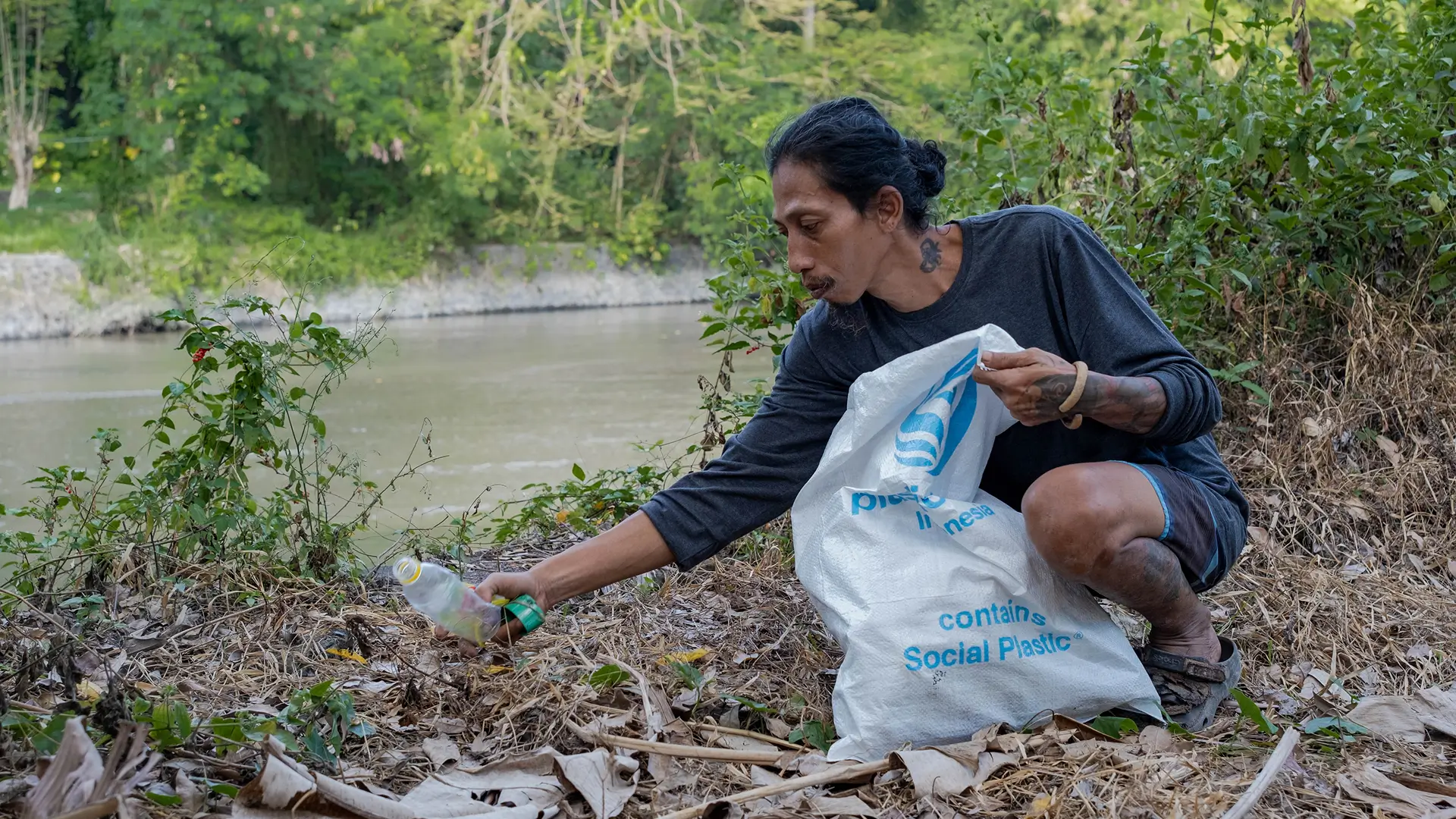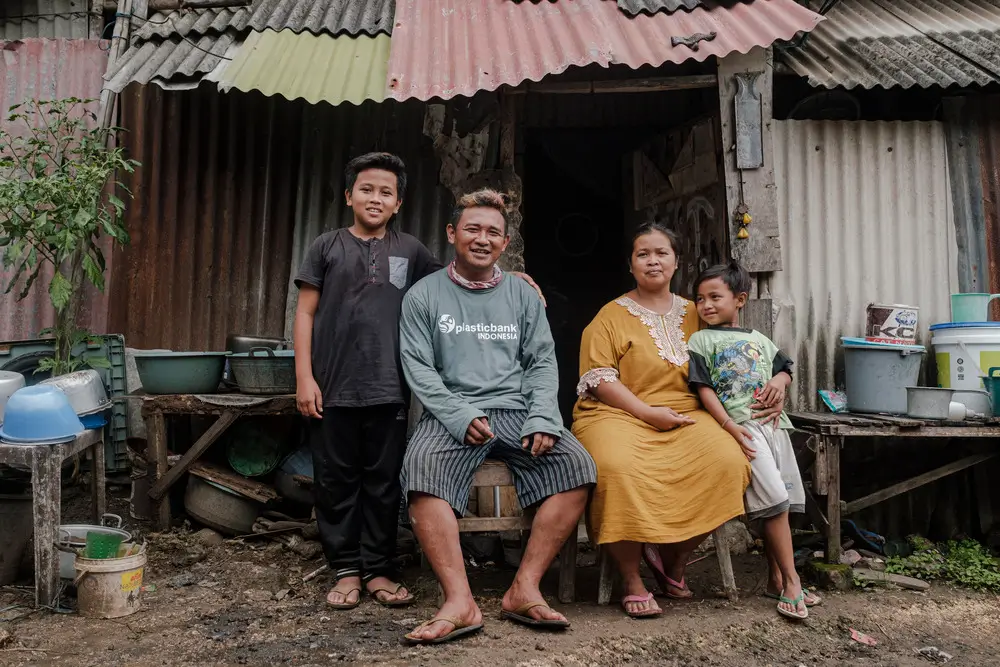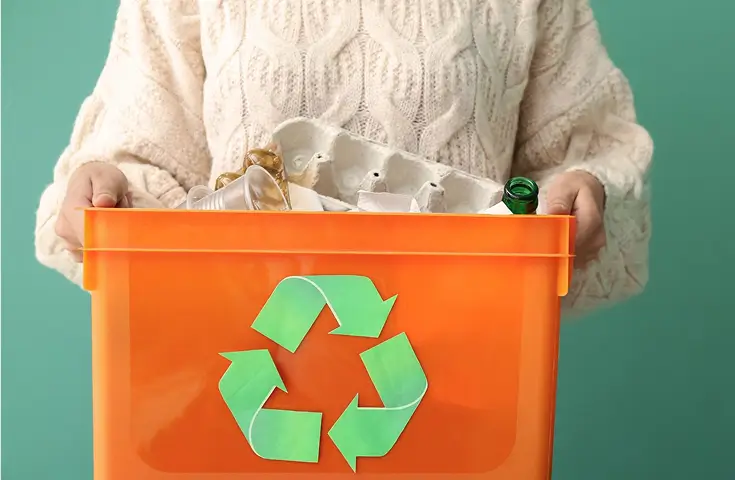Fund plastic collection
Every bottle you fund = one plastic bottle removed from the environment and exchanged by collection members. Go monthly for 50% more impact.
Starter
$9/mo
100 bottles,
30 day free access
Hero
$18/mo
1,000 bottles
gathered monthly
Legend
$36/mo
5,000 bottles
gathered monthly
Custom
Custom
50,000 bottles
gathered monthly
To simplify transactions and avoid fractional quantities, order totals are rounded to the nearest whole number. This may result in a slight adjustment to your final amount. Thank you for your understanding.

Join 26,000+ members in taking action

A story behind every bottle
For Juhari, a father of two, plastic is more than waste—it’s a way to provide for his family. He collects plastic daily and brings it to a Plastic Bank collection branch, where it’s exchanged for tokens he can use for food, school supplies, and other essentials.
Watch Juhari’s story to learn how your actions to fund plastic collection not only positively impact the environment but also empower members to earn a living by collecting plastic.
Each contribution includes
- Guaranteed plastic collection funded by your contribution
- Stories from the collection members you are impacting
- Free Plastic Bank membership to track and optimize your impact
As a member of Plastic Bank

Track your impact to date
Keep a record of how many bottles you have gathered

Download your impact certificate
Showcase your impact to your family, friends, and following

Calculate your plastic footprint
Learn how much plastic you consume per year

Learn how to expand your impact
Access our free online courses and articles
Want to support a specific community?
Frequently asked questions
Does Plastic Bank pay a salary to its collection community members?
Plastic Bank does not pay a salary to its members. They receive the local market rate for plastic by material type in cash from the buyer of the materials (collection branches). In addition to the standard market rate payment system, Plastic Bank uses a digital payment system to provide bonuses on eligible material collections above their market rate. The bonuses are paid directly to the members’ wallets in the PlasticBank® app through Plastic Bank tokens.
Who are the collection community members?
An individual who is over 18 years of age, registered through the PlasticBank® app, and gathers discarded plastic from the environment is a collection community member. Some are full-time members who have worked in informal waste collection for many years, while others work with us on a part-time basis to supplement other sources of income. Regardless of how much or how often our collection community members collect plastic, age-verified collection members can exchange plastic for additional income and social benefits at their local collection branch.
What do you do with the plastic after it's collected?
The plastic collected through our collection communities is delivered to our processing partners for reprocessing into Social Plastic® feedstock and reintegrated into products and packaging by partner organizations and brands.
Explain the work you do and what communities benefit.
Plastic Bank identifies vulnerable coastlines at the intersection of plastic pollution and poverty across the world that would benefit from plastic collection infrastructure. We then empower local entrepreneurs to establish collection branches in convenient locations and help gather collection communities together to collect discarded plastic from the environment. Community members exchange their collections at the branch for additional income and access to social, helping them to pave a path out of poverty and become changemakers by reducing plastic pollution. Collection members and collection branches are registered through the PlasticBank® app that records every transaction, enables traceable collection, secures income, and verifies reporting.
